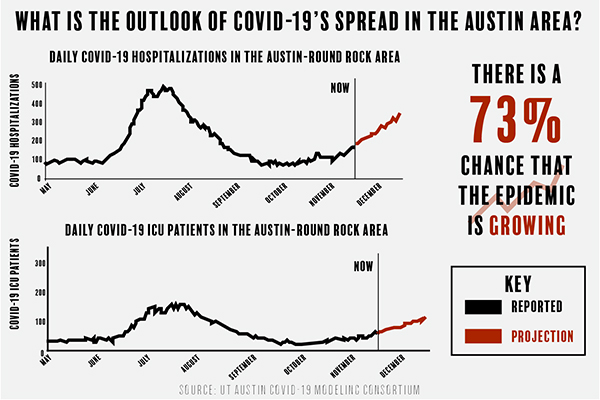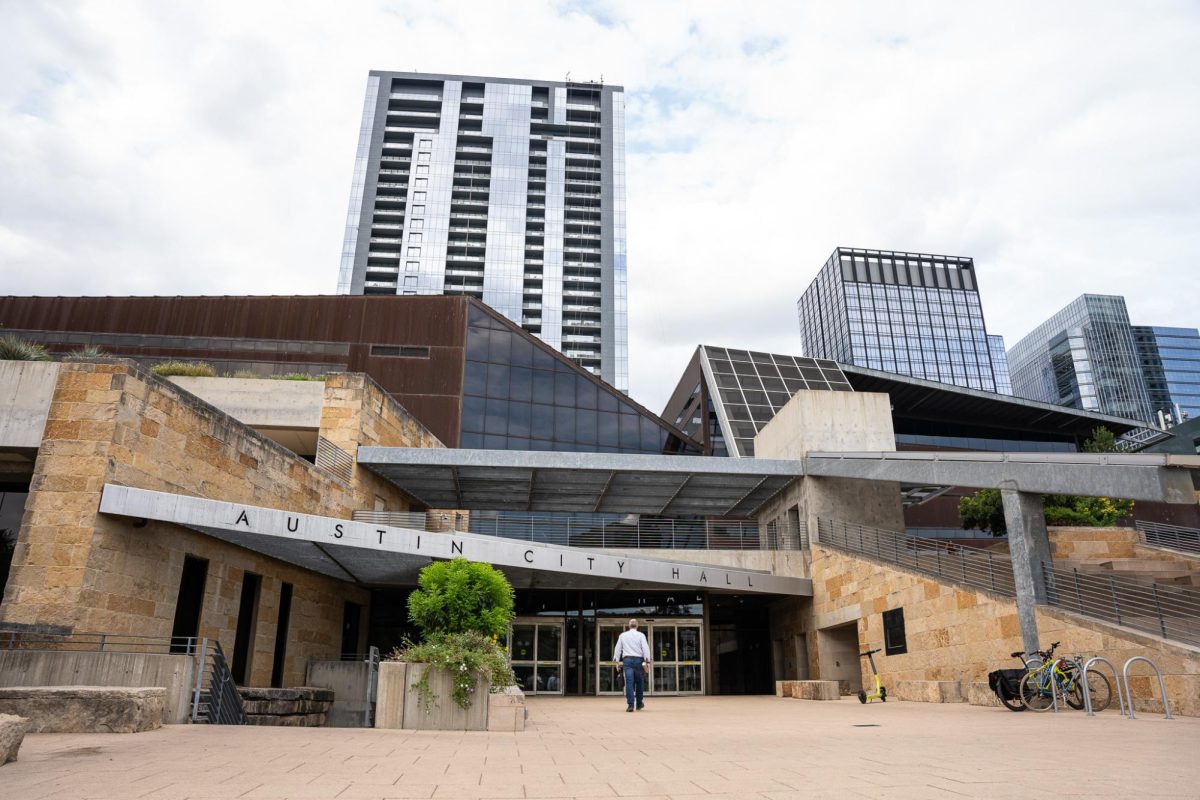COVID-19 hospitalizations, deaths and case numbers continue to climb nationally and locally, causing worry for some UT students as they look toward the holiday season.
Texas surpassed 1 million COVID-19 cases on Friday, a day where more than 184,000 cases were reported across the U.S. In the Austin area, the UT COVID-19 Modeling Consortium predicts a 73% chance the epidemic is growing based on the current reproduction rate.
Emily Javan, a researcher with the consortium, said the recent surge of cases could be attributed to people’s weariness toward following safety guidelines.
“We’ve been in this (pandemic) for so long, and there’s been a general attitude of trying to behave like it’s over, even though it’s not,” said Javan, an integrative biology doctoral student.
As cases surge, Javan said people need to take extra care in following health guidances — washing hands regularly, wearing a mask at all times and limiting interactions in poorly ventilated areas. People should also consider sheltering in place, although it may not be legally mandated, Javan said.
“What we really need to do is to start striving to be the broken link in these transmission chains, and really take great consideration over who we’re coming into contact with and what frequency,” Javan said.
Javan said UT students should get tested before returning home or traveling for the holidays. Different types of social gatherings will come with different levels of risk. She said a “friendsgiving” between young people may have a less dangerous outcome than Thanksgiving with an older demographic.
Javan said she recommends self-isolation after traveling to prevent chains of transmission if students decide to travel.
Computer science sophomore Michelle Sanchez is currently taking classes remotely from El Paso, a city she said is in a “nightmare scenario.” According to The Texas Tribune, inmates from county jails are assisting with processing dead bodies and several mobile truck morgues have been deployed as the local death toll climbs and hospitalizations soar.
Sanchez said she thinks the government needs to act to protect the health of communities by enforcing shelter in place or isolation. She said leaving responsibility up to citizens has not been effective.
“We were trying the individual responsibility thing … but considering the fact that over 200,000 people have died and infection is getting faster and faster … (it’s) very obviously a failure,” Sanchez said.
Sanchez said the nonchalant attitude regarding COVID-19 upsets her as she personally knows people who have died from the virus. Nearly 250,000 Americans have died from the virus as of Sunday afternoon, according to The New York Times.
“Every single one of those numbers is a community member, a parent, a sibling, a best friend,” Sanchez said. “It feels pretty bad that we’ve gotten to this point, and I don’t think it’s going to get better.”
Neuroscience sophomore Mohit Nadkarni lives in West Campus and said he feels other students do not take the virus seriously, which punishes those who have taken proper precautions.
“It’s everyone’s responsibility to be pretty up to date with what’s happening (with the pandemic),” Nadkarni said. “It’s not just your health. It’s everyone’s around you.”
Nadkarni said he celebrated Diwali, the Hindu festival of lights, online over the weekend and plans to participate in other holidays in a virtual format as well.
“My family and I have chosen to cancel any kind of Thanksgiving holiday-related or Christmas holiday-related event,” Nadkarni said. “We’re still doing Zoom calls. … We’re just going to have something really simple.”





















